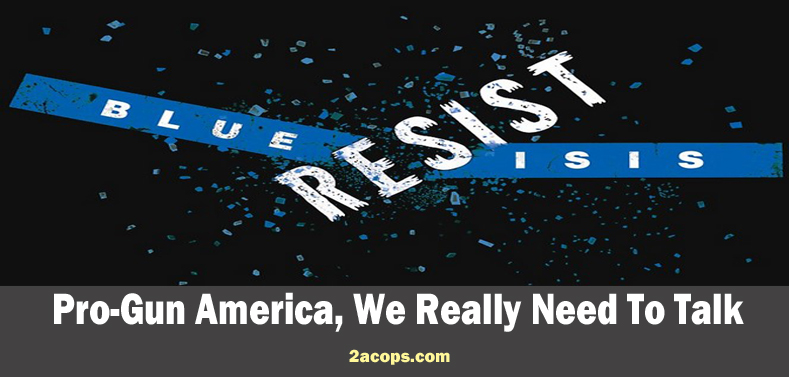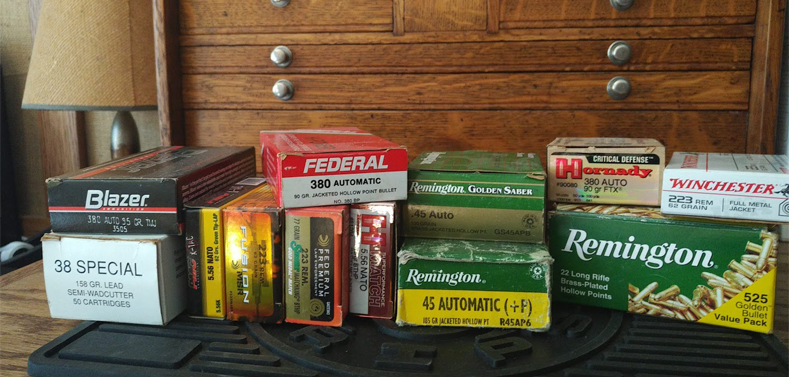On October 11, 2019, California Governor Gavin Newsom signed 15 additional gun control bills into law. It is a day that quickly came to be known as “Gunmageddon 2” in the gun community. The original Gunmageddon was created by Jerry Brown, Newsom’s predecessor. Two of the bills Newsom signed, AB-12 and AB-61, were aimed at expanding on California’s already existing “Gun Violence Restraining Order” (GVRO) law, also known as a “red flag” law.
California’s original GVRO, PC 18150, law was enacted only a few years ago in 2014, and to the best of my knowledge there have not been any complaints about it failing. That alone should make you wonder why it needed to be expanded. Additionally, at the time the original GVRO law was passed, it was already unnecessary because all it did was duplicate two long standing alternatives – Welfare and Institutions code 5150 (WI 5150) and civil restraining orders. These two new amendments which Newsom just signed greatly expand the already troublesome GRVO law’s potential for abuse.
First, let me explain why the original GVRO law was not needed. In California, for much longer than I was a cop, any petitioner could seek a restraining order against another person, no matter their relationship (spouse, neighbor, classmate, coworker, crazy guy on the street corner), and if the court found cause, the restraining order would be issued. By law, once the subject of that order was served, they were legally required to remove all firearms from their possession. They could sell them, give them to a family member to hold onto, donate them, turn them in to law enforcement for safe keeping, etc. Oddly enough, that sounds a lot like half of the 2014 GVRO law.
The other half of the 2014 law addresses someone, who because of mental health reasons, is a danger to themselves or others, in other words, suicidal or homicidal. In that case, California has a law that already applied, WI 5150. If a person is found to be homicidal or suicidal due to mental health issues, they can be taken, voluntarily or involuntarily, to a hospital for treatment and evaluation. In direct relation to that section is WI 8102 which says law enforcement shall confiscate all firearms for safe keeping.

Those two longstanding options legally covered everything that can be accomplished with PC 18150, the existing GVRO law, which is why I say it was not needed. The problem is, apparently PC 18150 was not good enough for politicians who hate guns. Why should someone have to be either an immediate family member, or be forced to demonstrate to a cop on the scene that someone is dangerous and needs to have their guns taken away?
In the minds of those who hate guns, it would be much better if almost anyone who has come into contact with that person can go to court, without the accused person present, and tell the judge whatever they like to convince the judge to grant the GVRO. And that is exactly what AB-12 does. It allows numerous other groups of individuals to go into court and petition the court, ex parte (defendant not present), to take the guns away from someone who has neither committed a crime nor qualifies for involuntary hospitalization due to mental health problems.
The reason they can say whatever they want on the GVRO petition is because the law fails to prescribe any punishment at all for persons found to be filing false claims. The act of lying on a GVRO petition merely counts as perjury, and just like filing of a false police report, and those cases are almost never filed on by prosecuting attorneys. In fact, in my entire career, I cannot remember a single time that the DA filed on any of the handful of blatantly false police reports I took, even though I investigated them and submitted them for prosecution.
On the other hand, AB-61 did not open the law to more potential people requesting GVRO’s, it just made it possible for people to petition the court to infringe on that person’s rights for five years instead of just one. Granted, the text of AB-12 and AB-61 have a significant amount of duplicated language, when you dig way down into AB-61, where it addresses PC 18190(f)(1), it discusses the new time frames.
So, thanks to the greatly expanded GVRO laws, a person who has neither been convicted of a crime, nor been adjudicated by a court to be mentally unfit, can now have their constitutionally guaranteed rights violated for up to five years, and all of that can be conducted without that person present in court to even defend themselves.
The biggest problem with this whole mess however comes from the thought processes of those who believe that gun laws can somehow magically prevent bad people from doing bad things. CA has had some of the strictest gun laws on the books, for decades, yet we also have been home to some of the deadliest mass shootings in recent years. The plain fact of the matter is that no law will ever stop a motivated criminal. It is just not possible, and to think it is not only ignores all the evidence to the contrary, but it involves some very sophomoric thought processes to boot.
Whether or not you support the rights of citizens to own guns, the enormity of the constitutional rights violations established by these laws should scare you, because today they want to take someone’s second amendment rights, but next time it might be your first amendment rights because what you say is dangerous.
This is a constitutional slippery slope, and if you cannot see that, or choose to ignore it, I am very worried about where this country is headed. The fact that a very pro-gun cop and the ACLU agree on this subject should tell you everything you need to know.
As always, your questions and comments are welcome. Be safe out there, and remember your ABC’s: Always Be Carrying.
-Matt
If you like the content you see here, visit our home page for more articles, and remember to sign up for our newsletter.





